第21章 THE AGE OF THE DICTATORS(2)
The Unitaries wished to have a system of government modeled upon that of France. They wanted the various provinces made into administrative districts over which the national authority should exercise full sway. Their direct opponents, the Federalists, resembled to some extent the Antifederalists rather than the party bearing the former title in the earlier history of the United States; but even here an exact analogy fails. They did not seek to have the provinces enjoy local self-government or to have perpetuated the traditions of a sort of municipal home rule handed down from the colonial cabildos, so much as to secure the recognition of a number of isolated villages or small towns as sovereign states--which meant turning them over as fiefs to their local chieftains. Federalism, therefore, was the Spanish American expression for a feudalism upheld by military lordlets and their retainers.
Among the measures of reform introduced by one republic or another during the revolutionary period, abolition of the Inquisition had been one of the foremost; otherwise comparatively little was done to curb the influence of the Church. Indeed the earlier constitutions regularly contained articles declaring Roman Catholicism the sole legal faith as well as the religion of the state, and safeguarding in other respects its prestige in the community. Here was an institution, wealthy, proud, and influential, which declined to yield its ancient prerogatives and privileges and to that end relied upon the support of clericals and conservatives who disliked innovations of a democratic sort and viewed askance the entry of immigrants professing an alien faith. Opposed to the Church stood governments verging on bankruptcy, desirous of exercising supreme control, and dominated by individuals eager to put theories of democracy into practice and to throw open the doors of the republic freely to newcomers from other lands. In the opinion of these radicals the Church ought to be deprived both of its property and of its monopoly of education. The one should be turned over to the nation, to which it properly belonged, and should be converted into public utilities; the other should be made absolutely secular, in order to destroy clerical influence over the youthful mind. In this program radicals and liberals concurred with varying degrees of intensity, while the moderates strove to hold the balance between them and their opponents.
Out of this complex situation civil commotions were bound to arise. Occasionally these were real wars, but as a rule only skirmishes or sporadic insurrections occurred. They were called "revolutions," not because some great principle was actually at stake but because the term had been popular ever since the struggle with Spain. As a designation for movements aimed at securing rotation in office, and hence control of the treasury, it was appropriate enough! At all events, whether serious or farcical, the commotions often involved an expenditure in life and money far beyond the value of the interests affected.
Further, both the prevalent disorder and the centralization of authority impelled the educated and wellto-do classes to take up their residence at the seat of government. Not a few of the uprisings were, in fact, protests on the part of the neglected folk in the interior of the country against concentration of population, wealth, intellect, and power in the Spanish American capitals.
Among the towns of this sort was Buenos Aires. Here, in 1829, Rosas inaugurated a career of rulership over the Argentine Confederation, culminating in a despotism that made him the most extraordinary figure of his time. Originally a stockfarmer and skilled in all the exercises of the cowboy, he developed an unusual talent for administration. His keen intelligence, supple statecraft, inflexibility of purpose, and vigor of action, united to a shrewd understanding of human follies and passions, gave to his personality a dominance that awed and to his word of command a power that humbled. Over his fellow chieftains who held the provinces in terrorized subjection, he won an ascendancy that insured compliance with his will. The instincts of the multitude he flattered by his generous simplicity, while he enlisted the support of the responsible class by maintaining order in the countryside. The desire, also, of Buenos Aires to be paramount over the other provinces had no small share in strengthening his power.
Relatively honest in money matters, and a stickler for precision and uniformity, Rosas sought to govern a nation in the rough-and-ready fashion of the stock farm. A creature of his environment, no better and no worse than his associates, but only more capable than they, and absolutely convinced that pitiless autocracy was the sole means of creating a nation out of chaotic fragments, this "Robespierre of South America" carried on his despotic sway, regardless of the fury of opponents and the menace of foreign intervention.